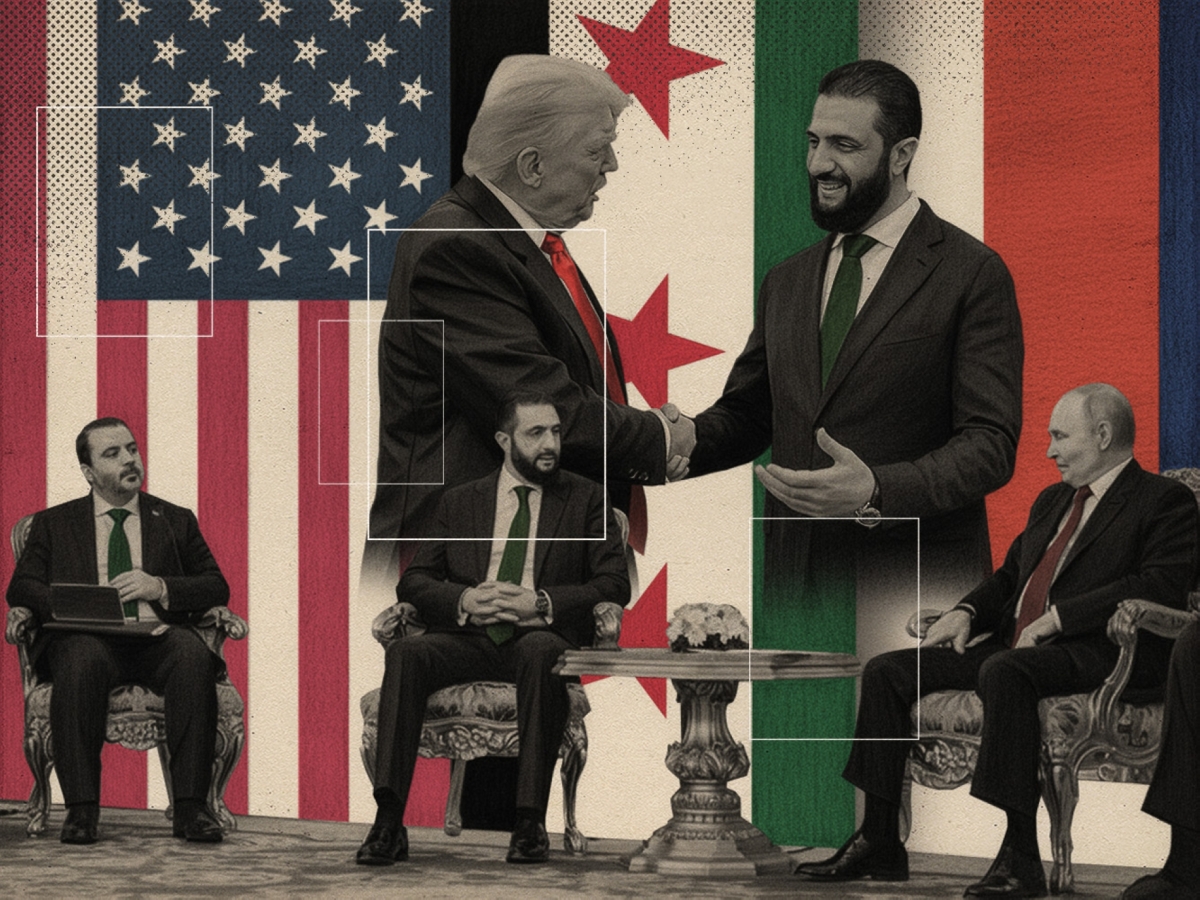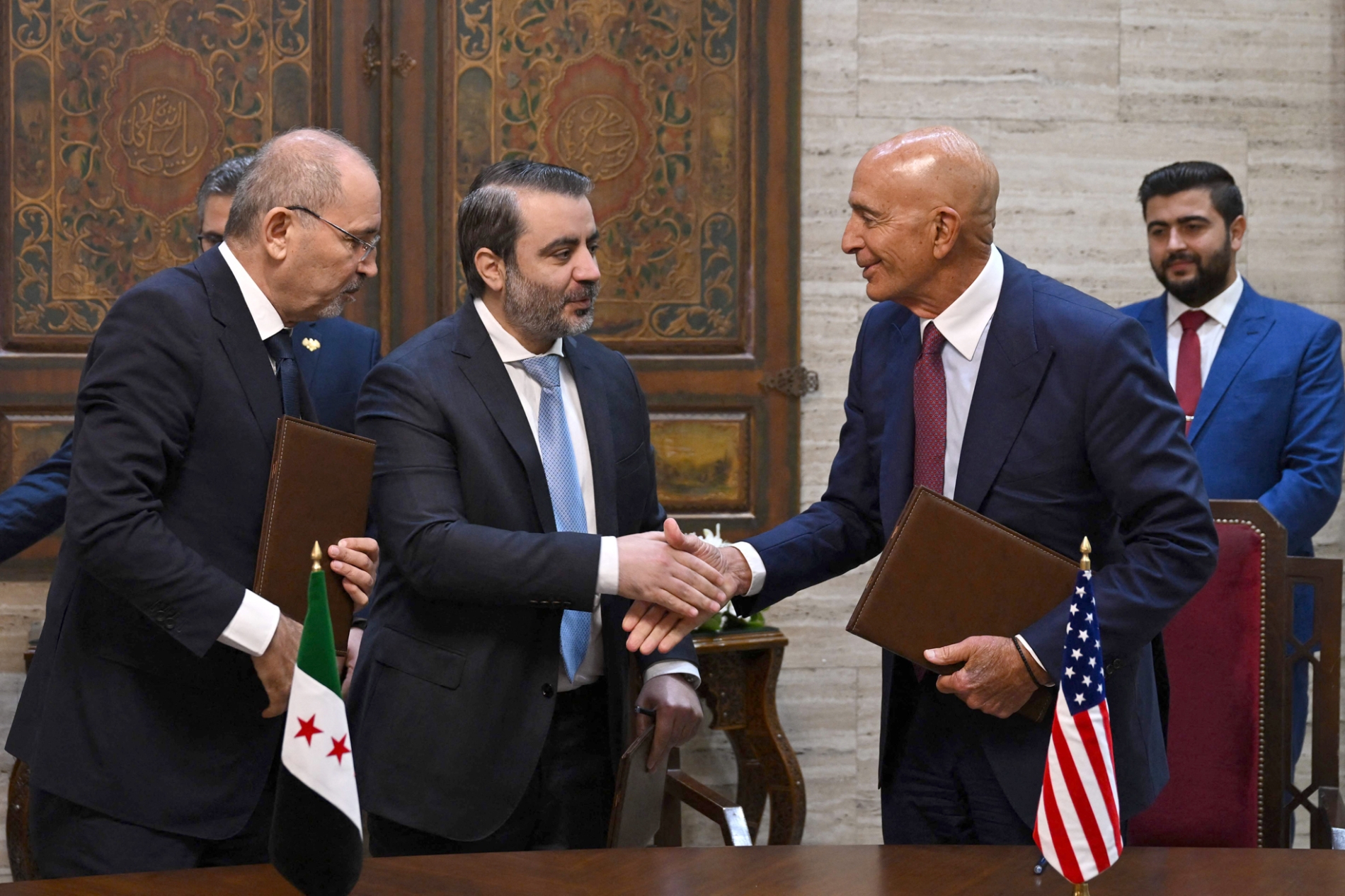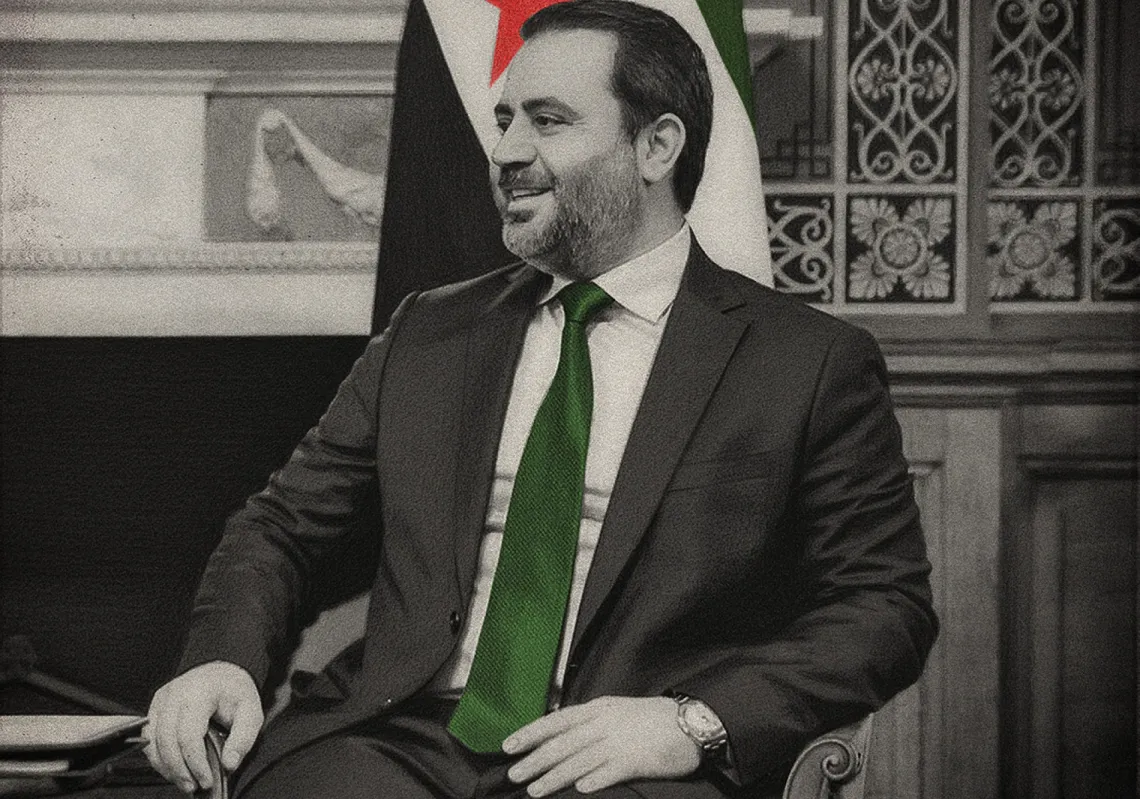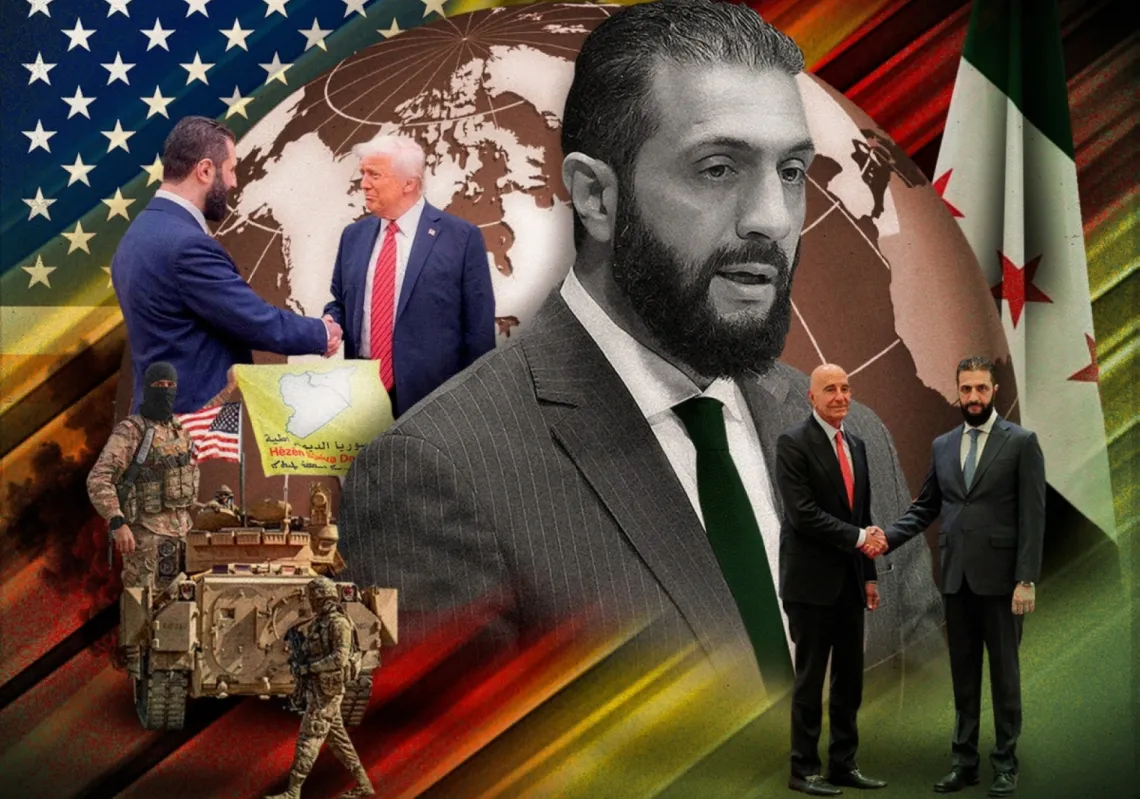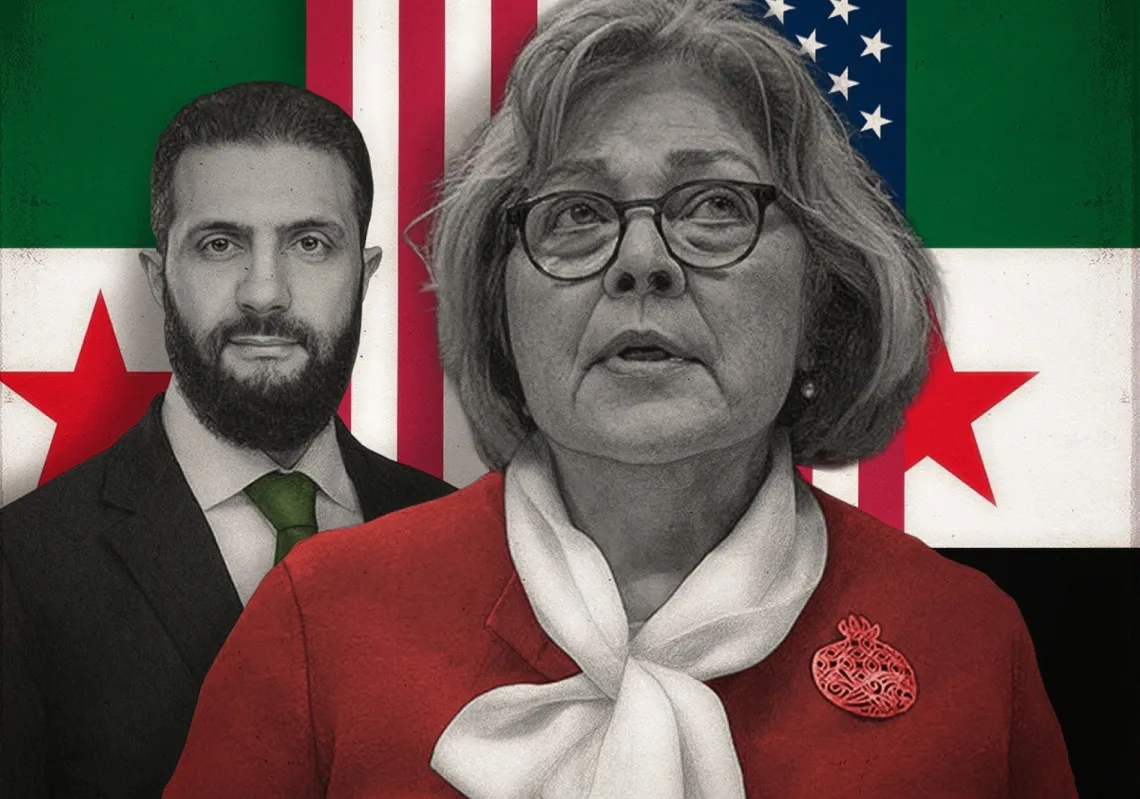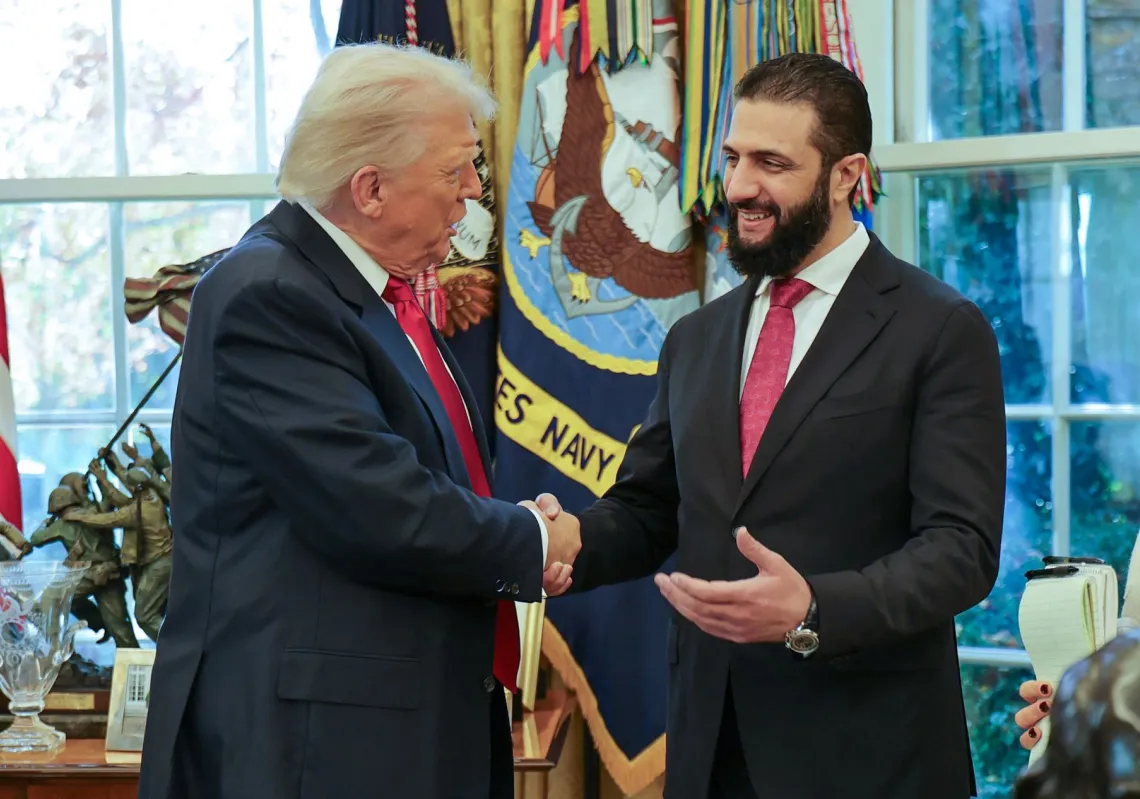In Part 2 of Asaad al-Shaibani’s conversation with Al Majalla, which was conducted on 13 November, the talk turns to the moment that changed Syria’s global position: President Ahmed al-Sharaa’s visit to Saudi Arabia in May, and his pivotal meeting with Crown Prince Mohammed bin Salman, during the visit of US President Donald Trump. In November, Trump invited al-Sharaa to the White House, the first sitting Syrian president to visit the Oval Office.
Al-Shaibani’s insights add a valuable depth and understanding regarding Damascus’s diplomatic journey since December 2024, notably the shift from a guarded American stance to one of direct political engagement and the easing of sanctions, brought about on 14 May in Riyadh after intervention from the Saudi Crown Prince and from Turkish President Recep Tayyip Erdogan, when both men “vouched” for Syria.
The impact was immediate. Syria has joined the international coalition against the Islamic State and secured three significant commitments from the United States: on the Syrian Democratic Forces (SDF) in Syria’s north-east, on Israel, and on sanctions. Al-Shaibani explains how Damascus has “offered everything” to the SDF, a US partner in the fight against IS. For the first time, he explains that Washington and Ankara are now on the same page regarding Syria’s autonomous region and the need for integration.
Syria’s foreign minister, still only in his late 30s, also discusses the country’s different approach to international relations under the new government. Whereas Bashar al-Assad’s regime leaned on Russian and Iranian support, Damascus now leans closer to the Gulf states, Türkiye, and the United States, whilst striving to keep a balance. He baulks at the idea of taking sides. “We do not believe in blocs,” he says. “We are like an old TV antenna searching for a signal, facing wherever Syria’s interests lie.” After publishing the first part of the interview yesterday, here is the second and final part of the interview.
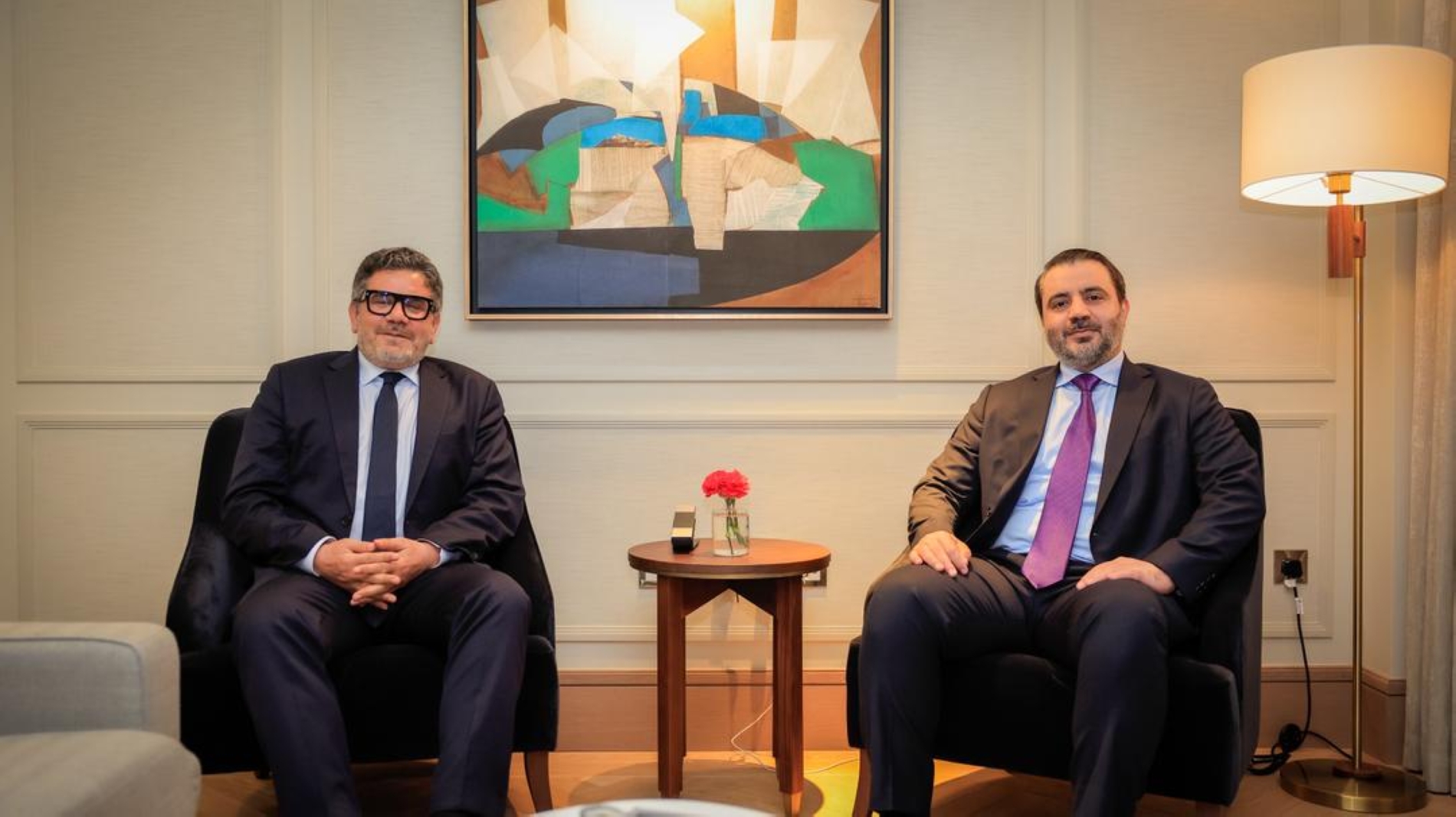
Until May of this year, the American approach was conditional or cautious, but when President al-Sharaa and you went to Riyadh to meet with Trump, it shifted from conditionality to support. Is that a fair assessment?
The Trump administration seizes opportunities. It is bolder than previous administrations. The transformation in Syria took everyone by surprise and is now a tremendous opportunity for change in this region. This new system is open to the United States. If I, as an American, do not capitalise on this, then I understand nothing about politics.
There was openness. The United States had long supported the Syrian revolution. Admittedly, its stance wavered at times, but it consistently upheld core principles. It kept sanctions in place, refused to normalise relations with the regime, and held this line until liberation. Then came the shift. This affected the American presence in Syria, removed Iranian forces and militias from Syrian territory, and rejected the alignment policies that the former regime had pursued.
The current government shares the United States' interest in combating IS. It has also stopped the export of (the illegal drug) Captagon. There is real potential for partnership. If I, as an American, fail to take advantage of this, then I have understood nothing about politics. From the beginning, we sent positive signals—written messages, voice recordings, meetings, phone calls. We had good communication with a well-known Democrat who was fluent in Arabic. We met him several times. He was the first ambassador appointed by the Americans.
They saw that our proposals were rational and coherent, and that there were real challenges on the ground. They began to ask: how do we deal with this (new) system? Do we really know them? Or do we only carry past grievances? We opened channels with Saudi Arabia, Jordan, and other Arab states, and we maintained a good relationship with Türkiye. More endorsements followed. People vouched for us.
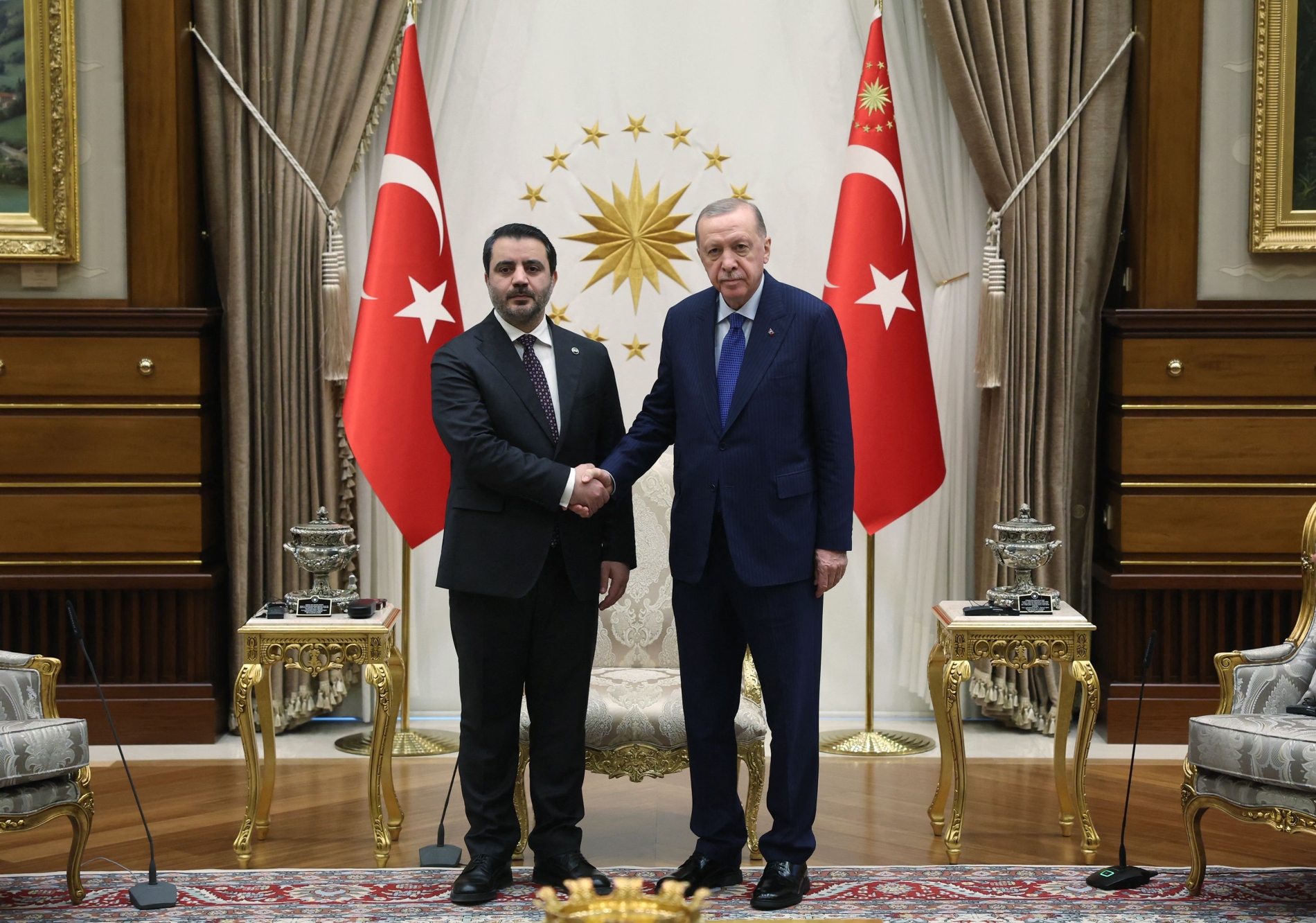
Then the meeting in Saudi Arabia took place...
That was a major turning point, the moment that steered things towards a more practical path. Crown Prince Mohammed bin Salman’s support for Syria was pivotal. He used Saudi Arabia's leverage and his own political capital to back this government. He urged Trump to lift the sanctions and invited him to meet President Sharaa. Saudi capital was mobilised in support of Syria at this stage.
The first impression at that meeting was positive. When President Sharaa met President Trump, the atmosphere was constructive. I was present, and Türkiye’s President Erdogan joined via phone. The message was clear: Syria was being vouched for. The impression President al-Sharaa made was strong. Crown Prince Mohammed bin Salman and President Erdogan encouraged Trump to lift the sanctions.
Trump has very strong ties with Türkiye and Saudi Arabia. His impression of Syria improved markedly, and he embraced the new phase. We then entered discussions on critical issues: IS, chemical weapons, and missing American citizens. Would we be able to form a government? We did. Would it be inclusive? It was. Would we conduct a national dialogue? We did. Could we draft a constitutional declaration? We did.
The government was functioning properly, and trusted partners supported it in Washington. Everything was progressing. Syria was shifting its foreign relations from one geopolitical camp to another, from past alignments to a new direction, one that included the Arab Gulf states, Europe, and the United States. That is the course we are pursuing. The language began to resonate. Profound changes are sweeping the region, and Syria is not a marginal state. Why would I not benefit from it?
Even with the SDF (Syrian Democratic Forces, the autonomous Kurdish-led government and militia in Syria's north-east that Damascus wants to integrate into new national structures), we presented a logical approach that helped ease American concerns. Had we handled these matters differently, there would have been no opening from Washington at all.


